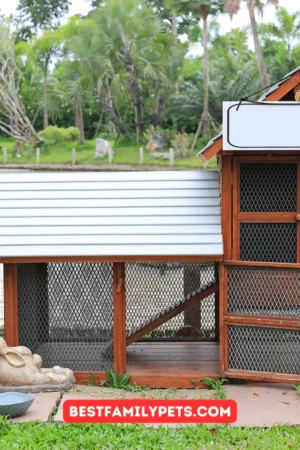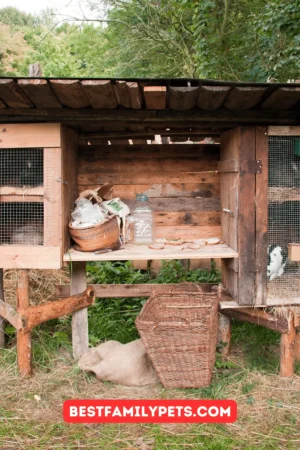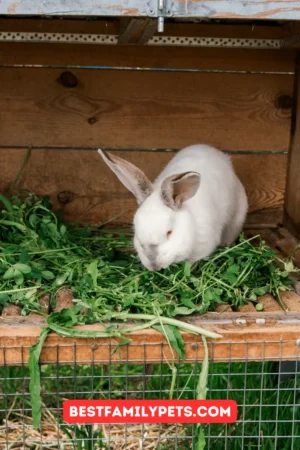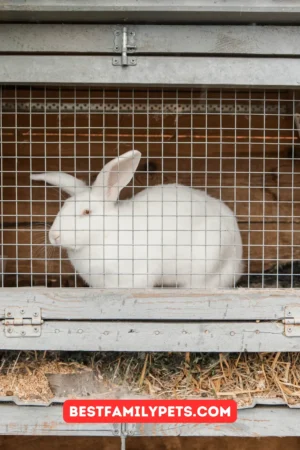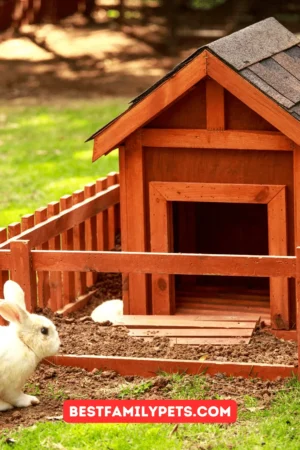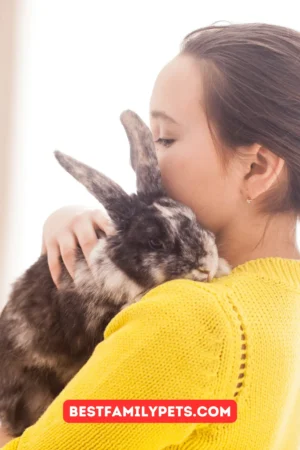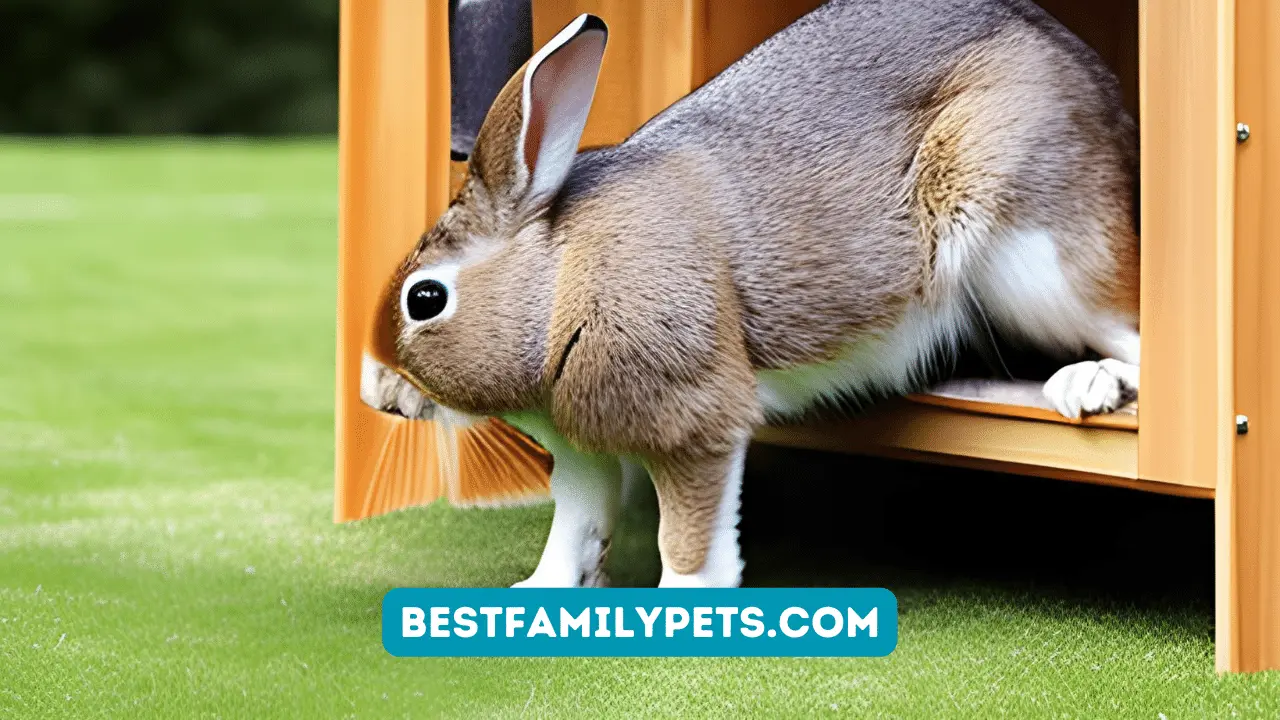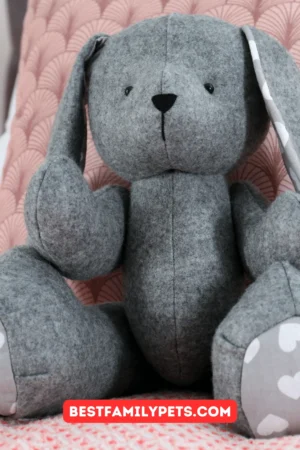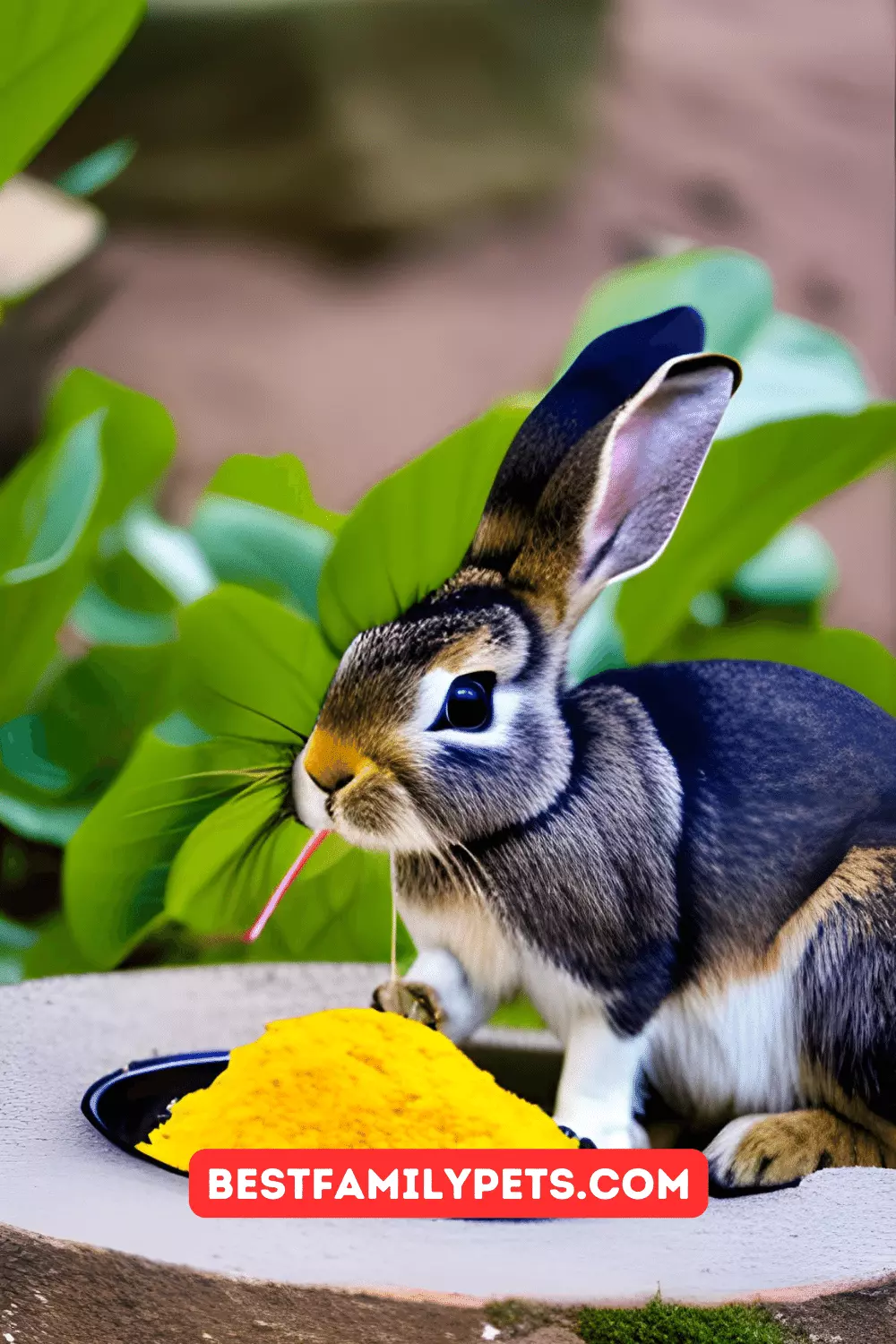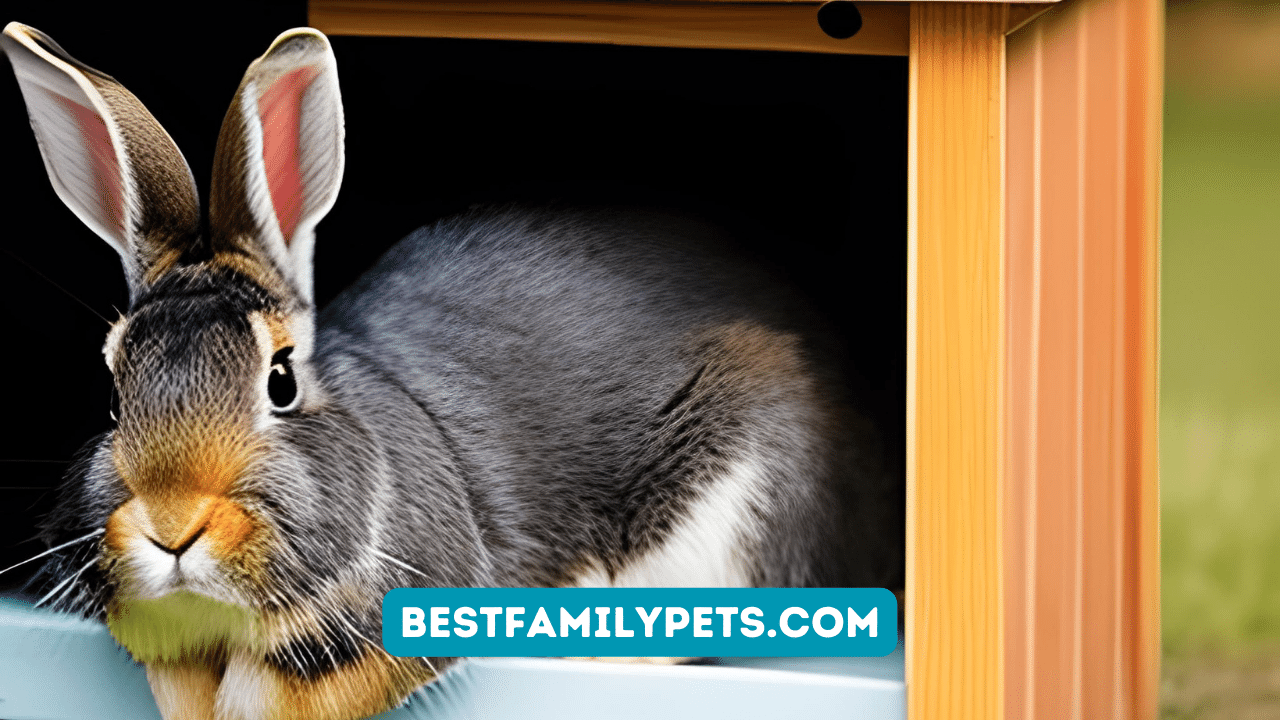Cleaning and Maintaining Rabbit Accommodations
Keep your bunny happy and healthy! Learn how to properly clean and maintain your rabbit’s accommodations with this comprehensive guide.
Keeping your rabbit’s accommodations clean and well-maintained is essential for their health and well-being. A clean environment reduces the risk of disease and helps prevent unpleasant odors. This guide will walk you through everything you need to know about cleaning and maintaining your rabbit’s home, from daily spot cleaning to deep cleaning routines.
Daily Spot Cleaning:
- Spot clean soiled bedding: Remove any soiled bedding, droppings, and wet hay daily. This helps control odors and prevents the buildup of harmful bacteria.
- Refresh food and water: Check and refill food and water containers daily. Ensure fresh, clean water is always available. Wash food bowls and water bottles with soapy water every few days.
- Inspect the litter box: Check the litter box daily and remove any droppings. Depending on the number of rabbits and litter box size, you may need to change the litter completely every 2-3 days.
Weekly Deep Cleaning:
- Remove all belongings: Take out all bedding, hay feeders, toys, and other accessories from the enclosure.
- Clean the cage: Use hot, soapy water to thoroughly scrub the cage or hutch. You can also use a pet-safe disinfectant solution, but make sure to rinse it thoroughly and allow the cage to dry completely before placing your rabbit back in.
- Wash accessories: Wash all toys, food bowls, and water bottles with hot, soapy water and allow them to dry completely before putting them back in the enclosure.
- Replace bedding: Provide fresh, clean bedding throughout the entire enclosure. Choose rabbit-safe bedding options like shredded paper, aspen shavings, or commercially available rabbit litter.
Additional Tips:
- Schedule regular cleaning: Establish a regular cleaning routine and stick to it. Daily spot cleaning and weekly deep cleaning will help maintain a healthy environment for your rabbit.
- Use vinegar solution: For stubborn stains or odors, you can use a solution of equal parts white vinegar and water to clean the cage or hutch.
- Neutralize odors: Baking soda can help neutralize odors in between cleanings. Sprinkle a small amount on the bottom of the cage and remove it before adding fresh bedding.
Signs of a Dirty Enclosure:
- Strong odors: A strong ammonia-like odor is a sign that the enclosure needs cleaning.
- Soiled bedding: If the bedding is heavily soiled with droppings and wet hay, it’s time for a change.
- Flies or maggots: The presence of flies or maggots indicates a dirty enclosure that needs immediate cleaning and attention.
Conclusion:
By following these simple tips for cleaning and maintaining your rabbit’s accommodations, you can help ensure they have a clean, healthy, and comfortable environment to live in. Remember, a clean and well-maintained space is essential for your rabbit’s physical and mental well-being.
Additional Resources:
- Rabbit Care Basics: https://www.thesprucepets.com/is-a-rabbit-the-right-pet-for-you-1239320
- How to Clean a Rabbit Cage: https://kaveecage.net/blogs/the-bunny-blog/rabbit-cage-maintenance-kavee
- Keeping Your Home Clean with Indoor Rabbits: https://blog.omlet.us/2022/11/14/keeping-your-home-clean-with-indoor-rabbits/
- Suitable environment for rabbits: https://www.nidirect.gov.uk/articles/suitable-environment-rabbits
- Keeping Your Rabbits Clean: https://www.wikihow.com/Keep-a-Rabbit-Clean
FAQs:
- How often should I clean my rabbit’s cage? You should spot clean daily and deep clean the cage at least once a week.
- What type of bedding should I use for my rabbit? Choose rabbit-safe bedding options like shredded paper, aspen shavings, or commercially available rabbit litter. Avoid cedar shavings and pine shavings, as they can be harmful to rabbits.
- What can I use to clean my rabbit’s cage? Use hot, soapy water for routine cleaning. You can also use a pet-safe disinfectant solution, but make sure to rinse it thoroughly and allow the cage to dry completely before placing your rabbit back in.
- How can I control the odor from my rabbit’s cage? Regular cleaning is the best way to control odor. You can also use baking soda to neutralize odors between cleanings.
- What should I do if my rabbit’s cage smells strongly? This could be a sign of a health issue or a dirty cage. Clean the cage thoroughly and monitor your rabbit for any signs of illness. If the odor persists, consult your veterinarian.
You may also like these:
-

The Importance of Size in Rabbit Habitats
Learn why the importance of size in rabbit habitats is crucial for your bunny’s physical & mental health. Discover minimum requirements & creative solutions for a happy rabbit!
-



Cleaning and Maintaining Rabbit Accommodations
Keep your bunny happy and healthy! Learn how to properly clean and maintain your rabbit’s accommodations with this comprehensive guide.
-



Rabbit Houses and Their Features: Creating a Safe and Happy Home for Your Bunny
Craft the perfect rabbit houses! Explore key features, considerations & tips to create a happy bunny haven. Learn about rabbit houses and their features today!
-



Rabbit Behavior and Needs: A Guide to Happy Hopping
Unleash the happy hops! Explore rabbit behavior and needs for a thriving bunny companion. Learn about social instincts, diet, enrichment, and more!
-



How to Choose a Rabbit Cage: A Guide to Rabbit Cages
Choosing a Rabbit Cage: A Guide to Finding the Perfect Home for Your Hoppy Friend. Learn how to pick the right size, material, and features. #HowtoChooseaRabbitCage
-



How to Choose a Rabbit Hutch: A Guide for Happy Hoppers
Unveiling the secrets to selecting the perfect rabbit hutch! Learn about sizing, materials, features, and more to create a happy home for your furry friend. #HowToChooseARabbitHutch
-



Rabbit Care Essentials: Keeping Your Bunny Happy and Healthy
Unlock the secrets to a happy, healthy bunny! Learn all about rabbit care essentials, from housing & diet to healthcare & enrichment. Before welcoming a fluffy friend into your life, it’s crucial to understand their needs. This guide delves into the essential aspects of rabbit care, ensuring you provide a loving and enriching environment for…
-



Rabbit Habitats in Melbourne: A Comprehensive Guide
Unveiling rabbit habitats in Melbourne! Discover where they thrive, their impact, and how to coexist responsibly. Melbourne’s diverse landscape offers various potential habitats for rabbits, both native and introduced. Understanding these habitats is crucial for anyone interested in learning more about these fascinating creatures or for those who may encounter them in urban or natural…
-



Is Buying a Second-Hand Rabbit Hutch a Good Idea?
Considering a second-hand rabbit hutch? Get expert advice and make the right choice for your furry friend. Read our guide now!
-



Top 10 Best Selling List for Rabbit Bed Large Pink
If you’re a rabbit owner, you know how important it is to provide your furry friend with a cozy and comfortable place to rest. Rabbit beds come in various shapes, sizes, and colors, but finding the perfect one for your bunny can be a daunting task. To make your search easier, we’ve compiled a list…
-



Trixie Natura Rabbit Hutch With Outdoor Run
Give your bunny a happy home! Trixie Natura Hutch + Outdoor Run: Top Features & Must-Know Considerations!
-



Rabbit Food: Which One is Best?
Discover the best rabbit food for your furry friend! Find the perfect nourishment to keep your bunny happy and healthy. Hop on now!
-



What Does Rabbit Taste like?
What Does Rabbit Taste like? Discover the unique taste of rabbit meat! Dive into our comprehensive guide and learn about its flavor and benefits.
-



Rabbit Hutches, Cages & Houses for Sale in Melbourne
Explore a wide range of rabbit hutches, cages, and houses for sale in Melbourne. Provide your furry friend with a comfortable home today
-



The Great and Small Rabbit Hutch: Finding the Perfect Fit
Give your furry friend the perfect home! Find the ideal rabbit hutch, big or small, with our expert guide. Start shopping now!



